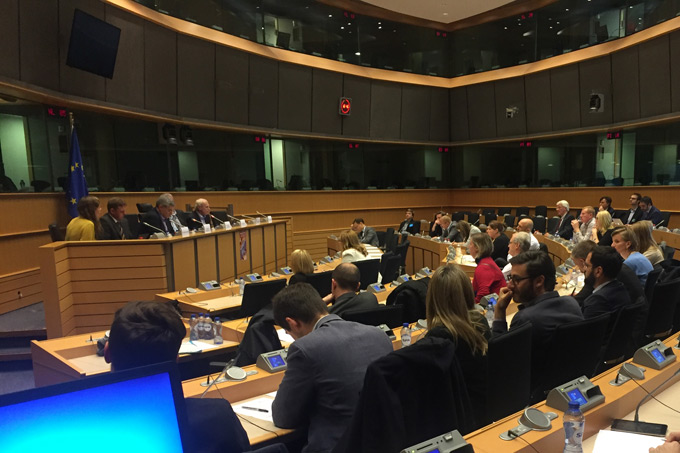SECA compliance and enforcement
Expert discussion in the European Parliament

Expert discussion in the European Parliament - Foto: Daniel Rieger
Stricter sulphur limits at sea entered into force on 1st January 2015 in the European Sulphur Emission Control Areas (SECAs): the North and the Baltic Sea and the English Channel. At the event 50 guests from all over Europe discussed the new emission control regulation and possible ways of enforcement and compliance like the number of controls, the level of penalties or technical devices for continuous monitoring and reporting.
The seminar was hosted by Michael Cramer (Greens/EFA) MEP, Chair of the Transport and Tourism Committee and co-hosted by Miltiadis Kyrkos (S&D) MEP. Thomas Verheye, Head of Unit for Industrial Emissions, Air Quality & Noise, DG Environment opened the session with an synopsis on EU’s view on the current compliance situation.
Dr. Axel Friedrich presented the existing methods to control ship compliance and ended his lecture with a statement for closed-meshed measurements with state of the art technical equipment combined with appropriate sanction mechanisms to ensure a dissuasive effect.
Dr. Kåre Press-Kristensen, Senior Advisor at The Ecological Council illustrated the dilemma of weak enforcement, price differences between heavy fuel oil and marine gas oil. He also gave an estimation why he thinks current compliance rates may be much weaker than official figures suggest.
Dea Forchhammer Manager at Maersk Oil Trading presented Maersk's view on the SECA regulation, its engagement in the Trident Alliance and called for a much stricter enforcement to ensure a level playing for shipping companies.
